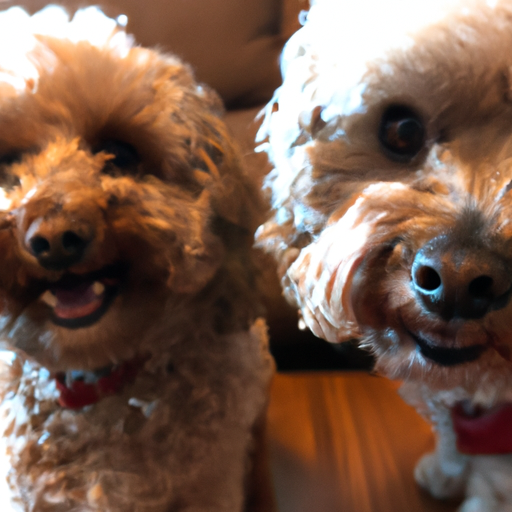As a caregiver, your hands are already full, and the last thing you need is to constantly clean up dog hair. You’re in luck because I’m here to guide you through the world of dogs that don’t shed or are considered hypoallergenic. These breeds might just be the perfect addition to your home, offering companionship without the constant clean-up.
Here’s a List of Dogs That Don’t Shed
- Bichon Frise: These fluffy fur-balls are not only adorable but also shed very minimally. Their hair grows much like humans’, so regular grooming will keep any loose hair under control.
- Poodle (and Poodle Crosses): Poodles come in various sizes, from Toy to Standard. Their curly hair doesn’t shed, and they’re known for their intelligence and adaptability.
- Shih Tzu: These small, friendly dogs have a double coat that doesn’t shed much. Regular grooming keeps their hair looking tidy.
- Maltese: Maltese dogs are small and very low shedding. Their long, silky hair needs regular grooming to prevent matting.
- Schnauzer: These dogs come in Miniature, Standard, and Giant sizes. They have a double coat that doesn’t shed much, adding to their appeal.
Why Some Dogs Don’t Shed?
To put it simply, some dogs don’t shed because their hair grows continuously, much like human hair. Other breeds have hair that grows to a certain length and stops. Dogs with continuously growing hair are often called “hair” dogs, while those with a limit are called “fur” dogs.
How to Care for Non-Shedding Dogs?
Caregivers, you should know that non-shedding doesn’t mean no maintenance. These dogs often require regular grooming to avoid matting and keep their coats in top shape. Here are some general care tips:
-
Regular grooming: This includes brushing, bathing, and sometimes professional grooming to keep the coat healthy.
-
Balanced diet: A good diet can help keep your dog’s hair healthy and reduce shedding.
-
Regular vet check-ups: Some health issues can cause excessive shedding, so regular vet visits are essential.
How to Choose the Right Dog for a Caregiver?
As a caregiver, your time is precious. You want a dog that fits into your care responsibilities, not one that adds to them. Here’s what to consider:
-
Size: Small dogs tend to be easier to handle and require less exercise.
-
Temperament: Dogs with a calm and patient temperament are often a good fit for caregivers.
-
Health: Some breeds have fewer health issues, meaning fewer trips to the vet.
Where to Find Non-Shedding Dogs?
Finding a non-shedding dog isn’t too difficult. You can start with local shelters or breed-specific rescues. You can also contact reputable breeders who specialize in hypoallergenic breeds.
Frequently Asked Questions
1. Are non-shedding dogs hypoallergenic?
Yes, most non-shedding dogs are considered hypoallergenic, but no dog is 100% hypoallergenic.
2. Do non-shedding dogs require more grooming?
Yes, non-shedding dogs often require more grooming as their hair can become matted if not regularly maintained.
3. Are non-shedding dogs good for people with allergies?
Yes, non-shedding dogs are generally better for people with allergies. However, individual reactions may vary.
4. Can I find non-shedding dogs at a shelter?
Yes, many shelters have non-shedding dogs. It’s worth asking the staff about this when you visit.
5. Are non-shedding dogs expensive?
It depends on the breed and where you get the dog. Some breeds can be pricey, but adoption is often a more affordable option.
Remember, the best dog for you is one that fits your lifestyle and care capacity. Non-shedding dogs require care too, but they can be a great fit for anyone who wants to minimize the mess and potential allergens in their home.



